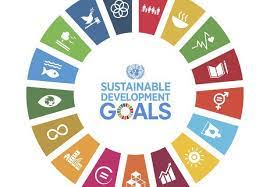The Importance of SDG Targets in Achieving a Sustainable Future
The Sustainable Development Goals (SDGs) are a set of 17 global goals established by the United Nations to address various social, economic, and environmental challenges facing the world today. Each goal is accompanied by specific targets that serve as measurable indicators of progress towards achieving the overarching goal.
SDG targets play a crucial role in guiding governments, organisations, and individuals in their efforts to create a more sustainable future for all. By setting clear and measurable objectives, the targets provide a roadmap for action and accountability, ensuring that efforts are focused and impactful.
Furthermore, the SDG targets are interconnected, highlighting the complex and interdependent nature of sustainable development. Progress in one area often has ripple effects across multiple goals, demonstrating the need for holistic approaches to addressing global challenges.
For example, achieving gender equality (SDG 5) can have positive effects on reducing poverty (SDG 1) and promoting quality education (SDG 4). Similarly, efforts to combat climate change (SDG 13) can contribute to improving health outcomes (SDG 3) and fostering sustainable cities and communities (SDG 11).
It is essential for all stakeholders to actively engage with the SDG targets to drive meaningful change at local, national, and global levels. By aligning policies, investments, and actions with the targets, we can work towards building a more inclusive, resilient, and sustainable world for present and future generations.
Frequently Asked Questions About SDG Targets: Understanding, Importance, and Achievability
- What are SDG targets?
- How many SDG targets are there in total?
- Why are SDG targets important?
- How can individuals contribute to achieving SDG targets?
- Are the SDG targets achievable by the set deadline?
- What happens if countries fail to meet the SDG targets?
What are SDG targets?
SDG targets refer to specific, measurable objectives set within the framework of the Sustainable Development Goals (SDGs) established by the United Nations. These targets serve as actionable milestones that guide efforts towards achieving the broader goals of sustainable development. By outlining clear and quantifiable aims, SDG targets provide a roadmap for progress, helping to track and evaluate advancements in areas such as poverty reduction, environmental conservation, education access, and gender equality. Ultimately, SDG targets play a pivotal role in driving focused action and accountability at all levels to work towards a more sustainable and equitable future for all.
How many SDG targets are there in total?
The Sustainable Development Goals (SDGs) consist of a total of 169 targets that are designed to address a wide range of global challenges across social, economic, and environmental dimensions. These targets provide specific and measurable objectives to guide efforts towards achieving the overarching goals set out by the United Nations. By having a comprehensive set of targets, the SDGs aim to drive progress and accountability in advancing sustainable development worldwide.
Why are SDG targets important?
The SDG targets are crucial in driving progress towards sustainable development goals by providing specific and measurable objectives for action. These targets serve as a roadmap for governments, organisations, and individuals to focus their efforts effectively and track their impact. By setting clear benchmarks, the SDG targets ensure accountability and transparency in addressing global challenges such as poverty, inequality, climate change, and environmental degradation. They also highlight the interconnectedness of different goals, emphasising the need for integrated approaches to achieve lasting change across various sectors. Ultimately, the importance of SDG targets lies in their ability to guide collective action towards building a more equitable, resilient, and sustainable future for all.
How can individuals contribute to achieving SDG targets?
Individuals play a crucial role in contributing to the achievement of SDG targets through their everyday actions and choices. By raising awareness about the SDGs and understanding how their behaviour impacts the goals, individuals can make a positive difference. Simple actions such as reducing waste, conserving energy, supporting ethical businesses, advocating for social justice, and participating in community initiatives all contribute towards advancing the SDGs. Through collective efforts and a shared commitment to sustainability, individuals can help drive progress towards a more equitable and environmentally conscious future for all.
Are the SDG targets achievable by the set deadline?
The question of whether the SDG targets are achievable by the set deadline is a complex and multifaceted one. While significant progress has been made towards some goals, there are still challenges that remain in achieving all targets by the designated timeline. Factors such as inadequate funding, lack of political will, and unforeseen global events can impact the pace of progress. However, with concerted efforts from governments, businesses, civil society, and individuals, there is potential to accelerate advancements and address gaps in implementation. Continuous monitoring, evaluation, and innovative approaches will be key in increasing the likelihood of meeting the SDG targets within the specified timeframe.
What happens if countries fail to meet the SDG targets?
If countries fail to meet the Sustainable Development Goals (SDG) targets, the consequences could be far-reaching and detrimental to global progress towards a sustainable future. Failure to achieve the SDG targets may result in persistent poverty, inequality, environmental degradation, and social unrest. It could exacerbate existing challenges such as climate change, food insecurity, lack of access to education and healthcare, and inadequate infrastructure. Moreover, failing to meet the SDG targets may lead to missed opportunities for economic growth and innovation that are essential for building resilient and inclusive societies. Therefore, it is crucial for countries to take proactive measures and collaborate on a global scale to ensure that the SDG targets are met for the benefit of all.
